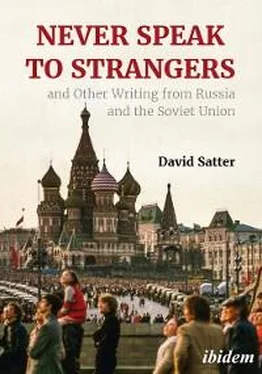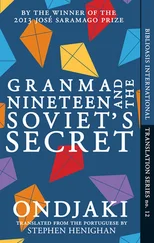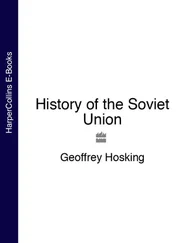The Soviets set out to create both a new society and a “new man.” Although they created a new socialist society, the goal of the new man—strong, unselfish, and disdainful of personal power when confronted with the needs of the community—continues to elude them. Unfortunately in the Soviet case, the goals were complementary. Without the new man to oversee it, the purity of the new socialist society was itself in danger.
In the Soviet Union today, government control of the economy and the interpretation of a guaranteed job as the basis of social and political participation create a sense of security but also lend to political life much of the inherent authoritarianism and control of the work place. At political meetings and lectures in offices and factories, people learn to agree ritually to the party policy being explained, although they may not agree with a word of it. The economic consequences of objecting or even appearing indifferent are not worth the risk.
The system maintains itself by controlling the flow of information. Foreign radio broadcasts are no longer being jammed, but there are no foreign newspapers on sale in Moscow except in foreigners’ hotels and at the airport. In spite of the Soviet claim to be the best-read nation, works of serious literature, including the Russian classics, are in chronically short supply, as are valuable statistical yearbooks. The result of these restrictions and the omnipresence of deadening consistent official propaganda is mass confusion. There is widespread dissatisfaction in the Soviet Union, but few are able to articulate what is on their minds.
The 60th anniversary inevitably prompts comparisons, and in many ways the situation in the Soviet Union—economically, socially, politically—is better than it has ever been. The Stalinist Terror appears to be a thing of the past, and people’s standard of living improves year by year, but the cautious statement of Mr. Leonid Brezhnev, the Soviet leader, in his report last week on the 60th anniversary, that “we have stood our ground and won” is indicative of the fact that the Soviet Union, which once saw itself as the embodiment of historical dynamism, is slowing down.
The Soviet leadership of the revolutionary State has become a gerontocracy, or rule by the elderly. The majority of the ruling Politburo are 70, or close to it, and they have passed up several opportunities to promote younger men. Only five Politburo members have been dropped since the Brezhnev-Kosygin leadership took over in 1964 and only one of these, former President Nikolai Podgorny, was a central figure. The stability of the Soviet leadership is reflected in the Communist Party Central Committee, where 90 per cent of the full Central Committee members elected at the 25th Party Congress in 1975 were re-elected to posts they held at the 24th Party Congress in 1971—a sharp contrast to the heavy turnover under Khrushchev and Stalin.
At the same time, the years of spectacular economic growth appear to be over. In 1976, the growth of Soviet industrial output was less than a third of what it had been in 1951. The increase in productivity of labour, a crucial index for the Soviet Union’s future economic health, was also last year less than a third of the 1951 increase. Soviet foreign trade, however, has greatly expanded. Soviet trade with the West has more than doubled in the past six years, and Soviet foreign trade as a whole has increased almost tenfold in the past 20 years. The Soviet Union is no longer isolated from the world economy or insulated from its problems. The result is a relationship of interdependence with the capitalists which the early communists sought to minimise.
Under these circumstances, the Soviet Union does not have and apparently does not want the revolutionary’s disdain for convention and his relative freedom of action. The Soviet Union at 60 appears to prefer international respectability and recognition of its place as one of the world’s two great superpowers under circumstances in which neither the coercion of Communist Party rule, nor the post-millennial enthusiasm which conceals it, is called into question.
The two clearest threats to the Soviets in this regard are the Eurocommunists and the dissidents. At last week’s two day celebration meeting marking the 60th anniversary, the most important note of discord was heard over the issue of Eurocommunism, which promises Communism in a pluralist political society. The task of consolidating the Soviet regime and Soviet international influence among communists and non-communists alike will be greatly complicated by any successful Western European example of a Marxist government operating in conditions of political and intellectual freedom.
The Soviet international position, and particularly the relationship with the U.S., could be jeopardised by the dissidents. The West has shown a predilection to press the Soviet Union to adhere to its international and human rights commitments, and the dissidents, by basing their activities, as they have in recent years, on explicit Soviet undertakings, are always in the position of having a potential external ally.
The Soviets enjoy birthdays, and the prospectis of regular celebrations of the events of the October Revolution at least every decade. As the Revolution fades into history, the Soviet Union will remain a superpower on the basis of its formidable strength. It is hard to escape the impression, however, that the retelling of the events of October and the glorification of Lenin, such as have taken place in the week preceding today’s anniversary, will not of themselves continue to inspire other peoples to follow the Soviet example unless the Russians can reverse the trend towards rigidification and embourgeoisement and—politically, economically, and ideologically—begin to offer the world something new.
Financial Times, Thursday, November 24, 1977
Smoking in the Soviet Union
Hypnosis is being used to combat the smoking habit in the Russian actors’ sanatorium at Sochi, the resort which is the centre of the Soviet antismoking campaign.
Instructions calculated to induce a trance and accompanied by organ music or the sound of birds chirping are transmitted to receivers in the pillows of those taking the cure upstairs. The instructions are followed by a carefully phrased antismoking message, the last sound the actor hears before falling asleep.
The method is only one of the sophisticated means being employed in Russia to get people to give up smoking. Although tobacco production is scheduled to rise 16 per cent in the 1976–80 five year plan, the countervailing efforts to discourage the habit are considerable, and growing.
Smoking is banned on all international Aeroflot flights of less than five hours, in dining cars, sports stadiums, swimming pools, ticket offices and—with difficulty—in many cafes. Moscow recently banned smoking at tables in the city’s 120 restaurants, allowing it only in restrooms and special foyers.
Russia is the world’s fourth largest tobacco grower, after the U.S., China and India, with total production in 1976 of 264,000 tonnes of raw tobacco, 218 bn. cigarettes and 1.57 bn. “Papirosi,” potent cigarettes which consist of a two-inch holder made of rolled paper and an inch of chewing quality tobacco. Demand for tobacco products is high and last year Russia supplemented domestic production by importing 74,000 tonnes of raw tobacco and about 53 bn. cigarettes, mostly from Bulgaria.
Sochi has undertaken a coordinated drive against the habit. City officials report a 25 per cent drop in cigarette sales and no decline in tourism. The Sochi anti-smoking effort is largely a characteristic of the “city of health” but it could presage wider efforts against smoking in the country as a whole.
Читать дальше












